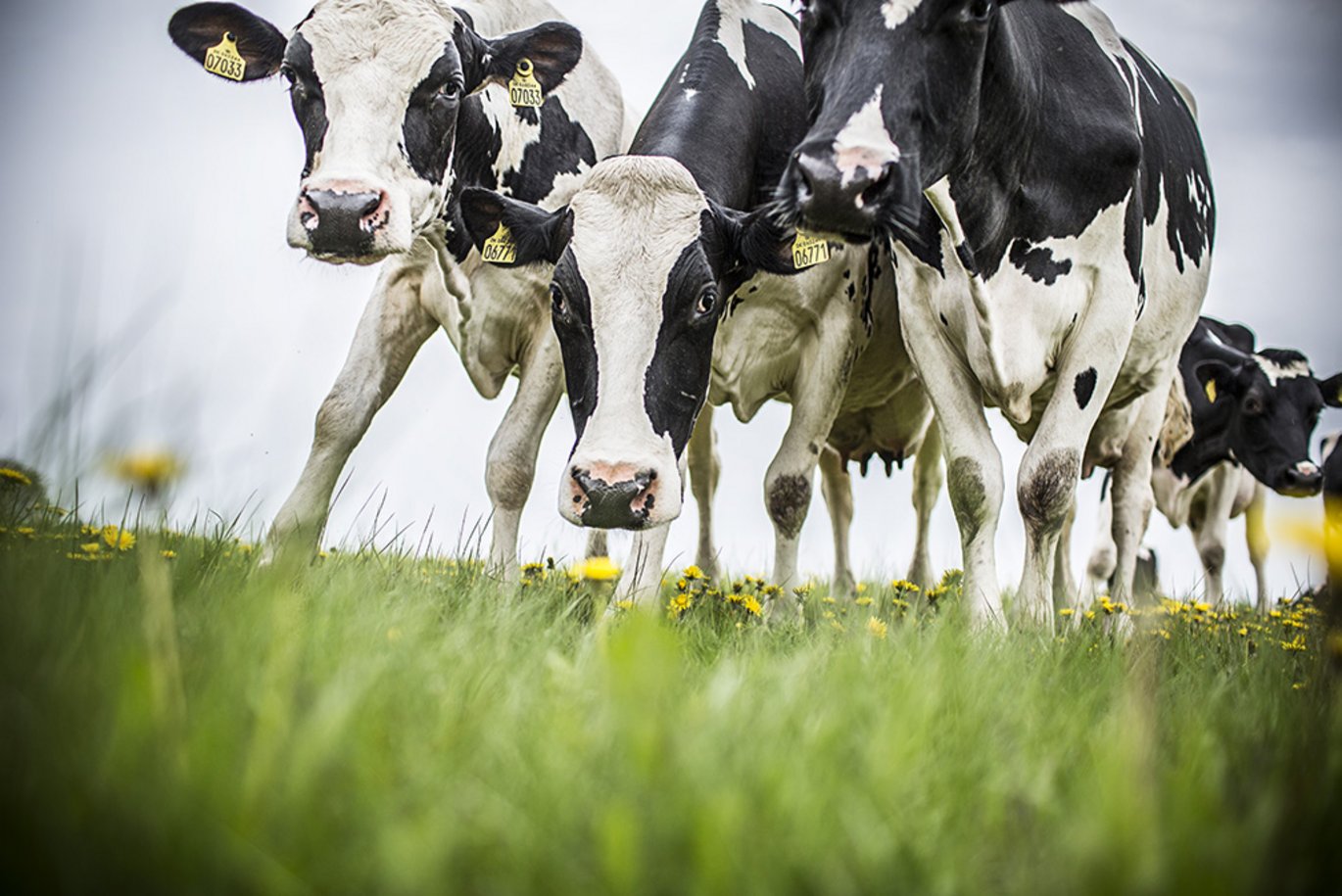Healthy and strong animals can reduce agriculture's climate impact
But how can this be measured and integrated into carbon accounting? A group of researchers, with Danish contributions, has come together to describe this. It aims to pave the way for harvesting the seemingly low-hanging fruits.

Livestock production significantly contributes to greenhouse gas emissions, thereby playing a role in global warming.
We can reduce the number of livestock to lower the carbon footprint. However, there is a lesser-known solution: Focusing on improving animal health and welfare.
A healthy animal is a more efficient animal.
This leads to lower greenhouse gas emissions and increased productivity, making livestock production more resilient.
The hidden connection
At first glance, animal health may seem unrelated to climate change, but there is a connection. Animals not burdened by health issues are more efficient at converting feed into meat, milk, or eggs and can produce more.
They reproduce better and grow more effectively, with lower mortality rates and reduced medication use.
Collectively, this means fewer resources are wasted, and fewer greenhouse gases are emitted. For instance, a cow suffering from mastitis produces less milk and requires more resources to recover.
Healthy and robust animals can better withstand climate change
Improved health provides several benefits beyond merely reducing greenhouse gas emissions.
Healthy animals are better at coping with extreme weather conditions arising from global warming. This enhances food security and reduces the risk of disease transmission to humans.
Climate change is already altering the number and species of various parasites, leading to increased infection pressure, more disease outbreaks, and higher stress among livestock.
This stresses the animals, causing them to emit more greenhouse gases, further exacerbating the climate crisis.
Quantifying the impact
While the connection between animal welfare and greenhouse gas emissions is intuitively logical, there currently is a lack of knowledge regarding its actual impact on the climate. Not all diseases burden the climate equally, and disease expression varies under different production conditions.
Therefore, the researchers propose developing new tools and gathering more data to measure the contribution of disease prevalence to climate impact more accurately. Such data will be crucial for developing strategies to improve health while combating climate change.
What’s needed?
In a recently published article in Proceedings of the Royal Society B, the researchers present six recommendations. These aim to facilitate mapping, calculating, and acting upon the effects of improved livestock health. The recommendations, which can be read in full in the scientific article, summarize the following points:
- Act on current knowledge while developing methods and gathering more data.
- Create shared data repositories.
- Expand existing monitoring systems and conduct routine national assessments of disease prevalence.
- Incorporate animal health into national greenhouse gas reduction plans.
- Continuously update knowledge with new experimental data.
- Involve stakeholders and decision-makers in the process, ensuring transparency regarding expected effects and uncertainties associated with the calculations.
According to the researchers, such a new framework could create unified policies and practices regarding health interventions that help reduce greenhouse gas emissions.
Additional information | |
We strive to ensure that all our articles live up to the Danish universities' principles for good research communication (scroll down to find the English version on the web-site). Because of this the article will be supplemented with the following information: | |
External funding | The article was written within the GUDP project 'KlimaKS', which has been previously described here. |
External collaborators | Please refer to the author list in the scientific article. |
External commenting | None |
Conflicts of interest | None |
Read more | The scientific article in Proceedings of the Royal Society B. Press release from Institute for Global Food Security, Queen’s University Belfast. |
Contact information | Mogens Agerbo Krogh |
